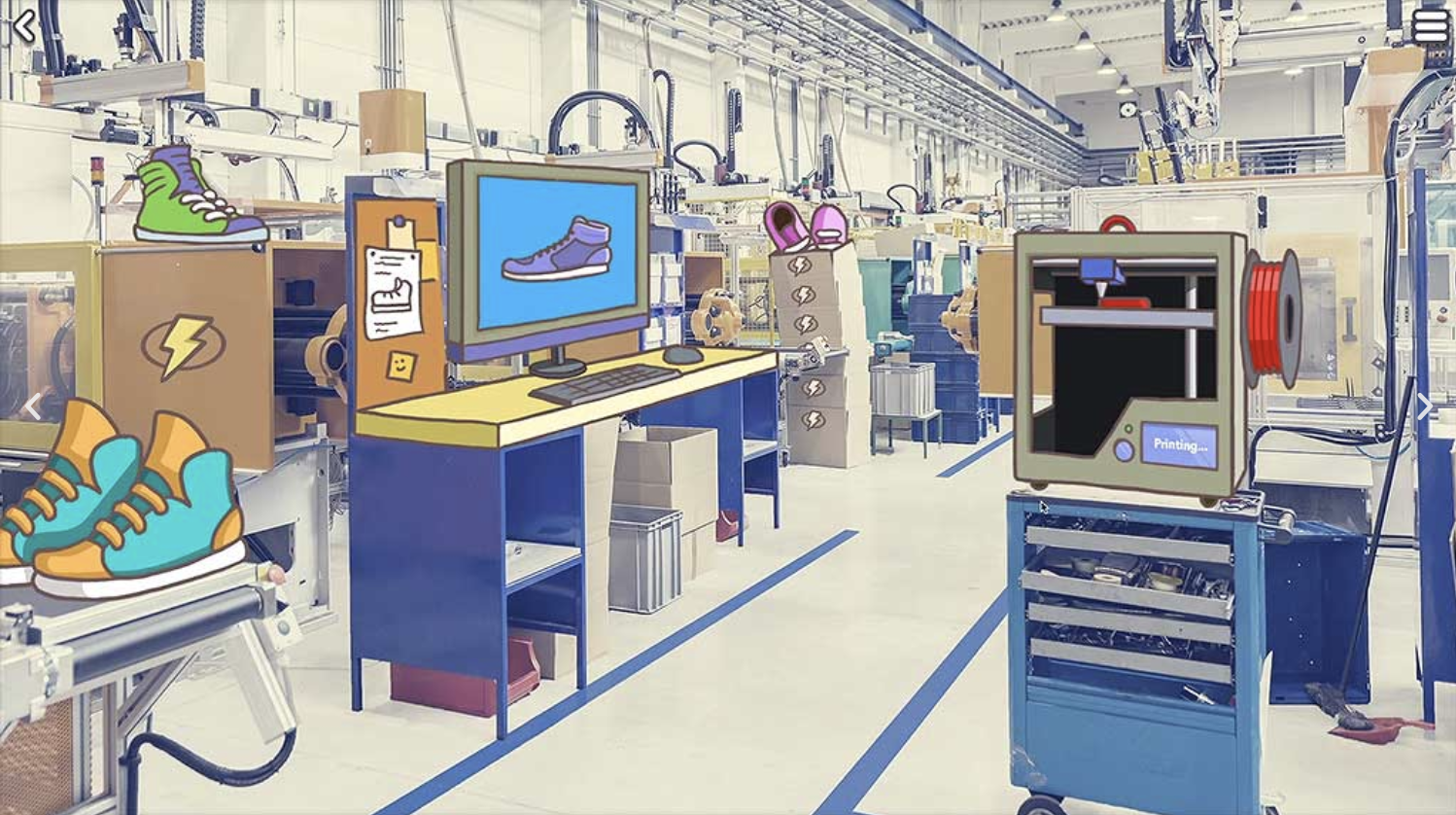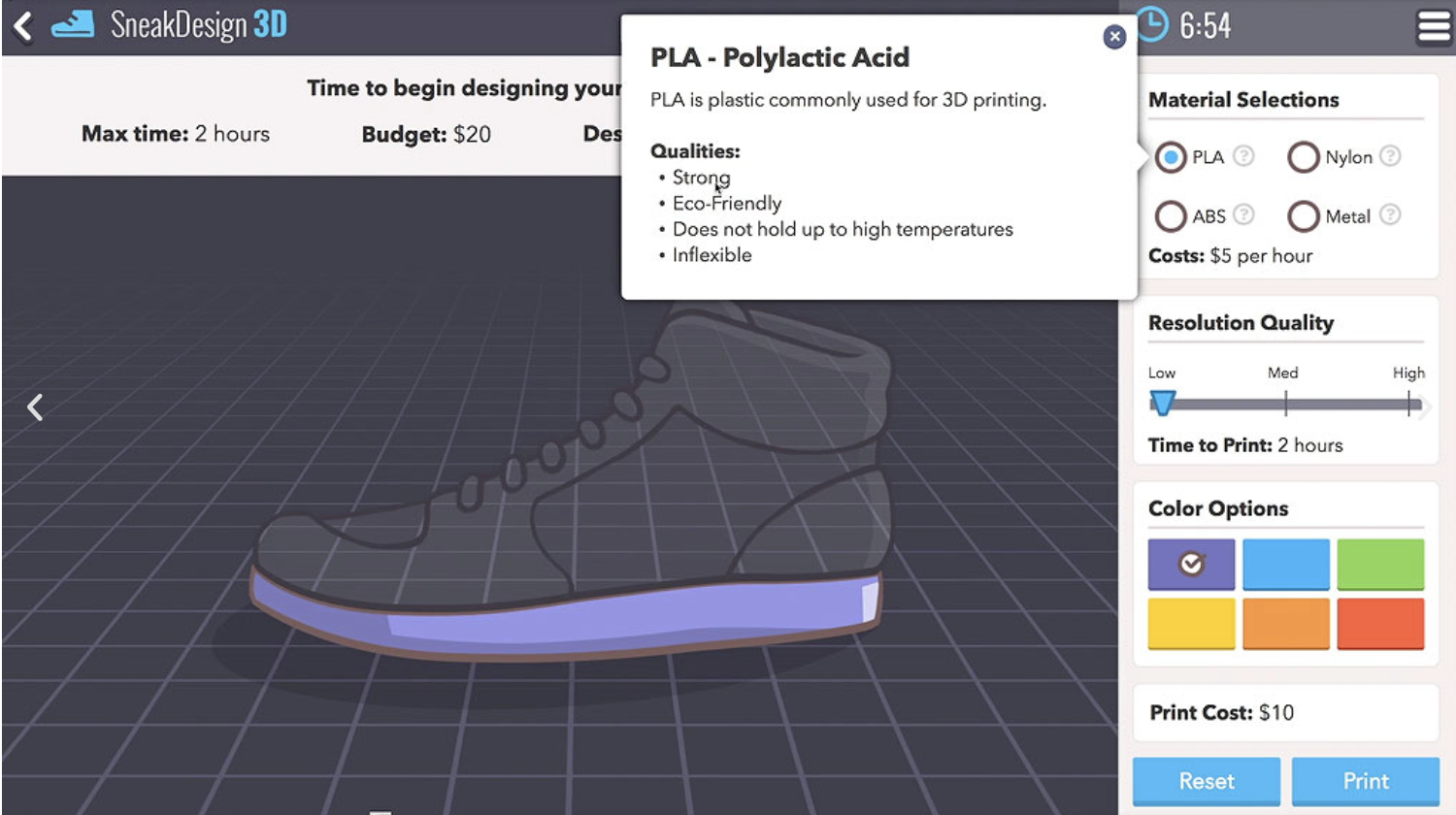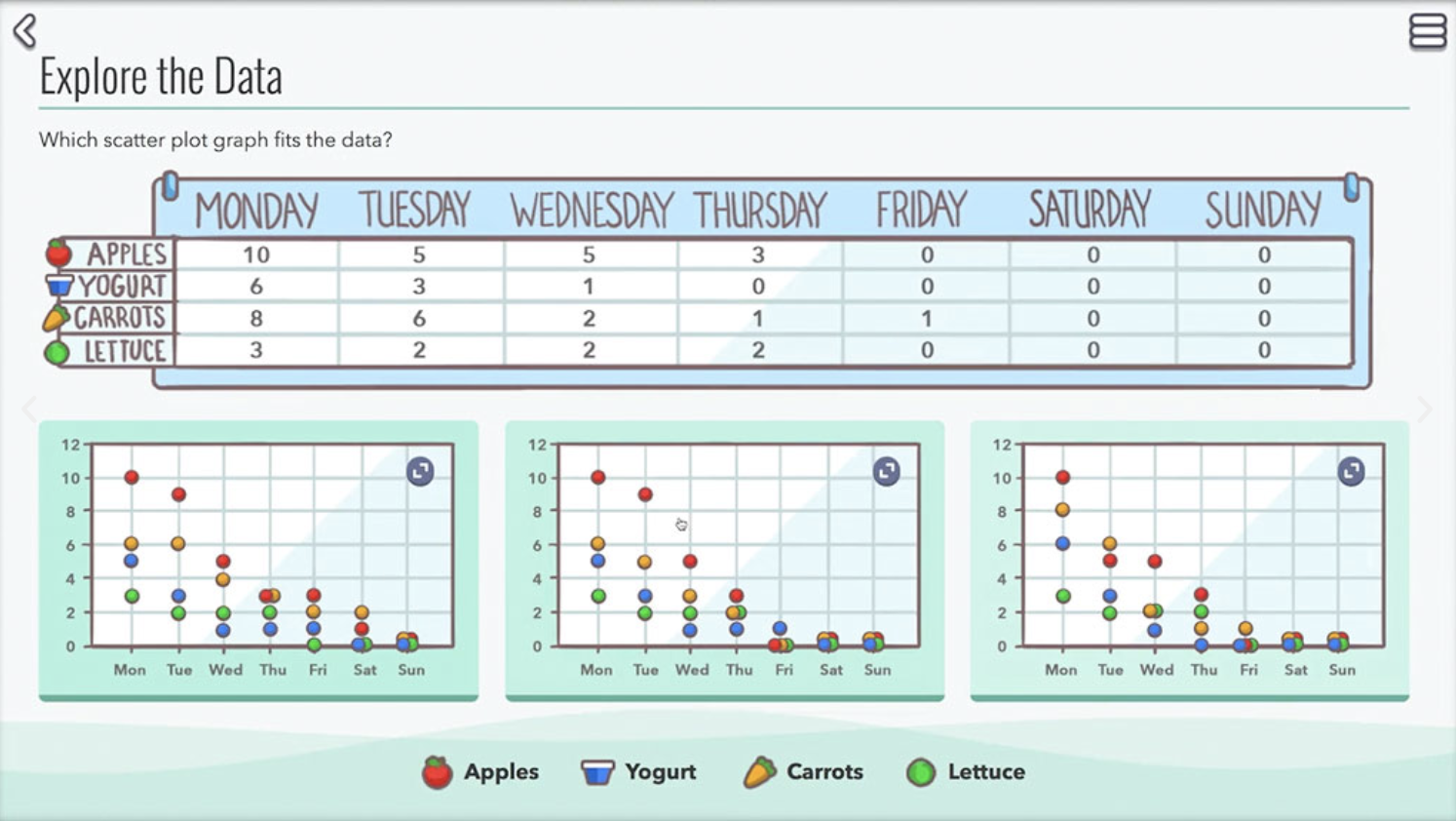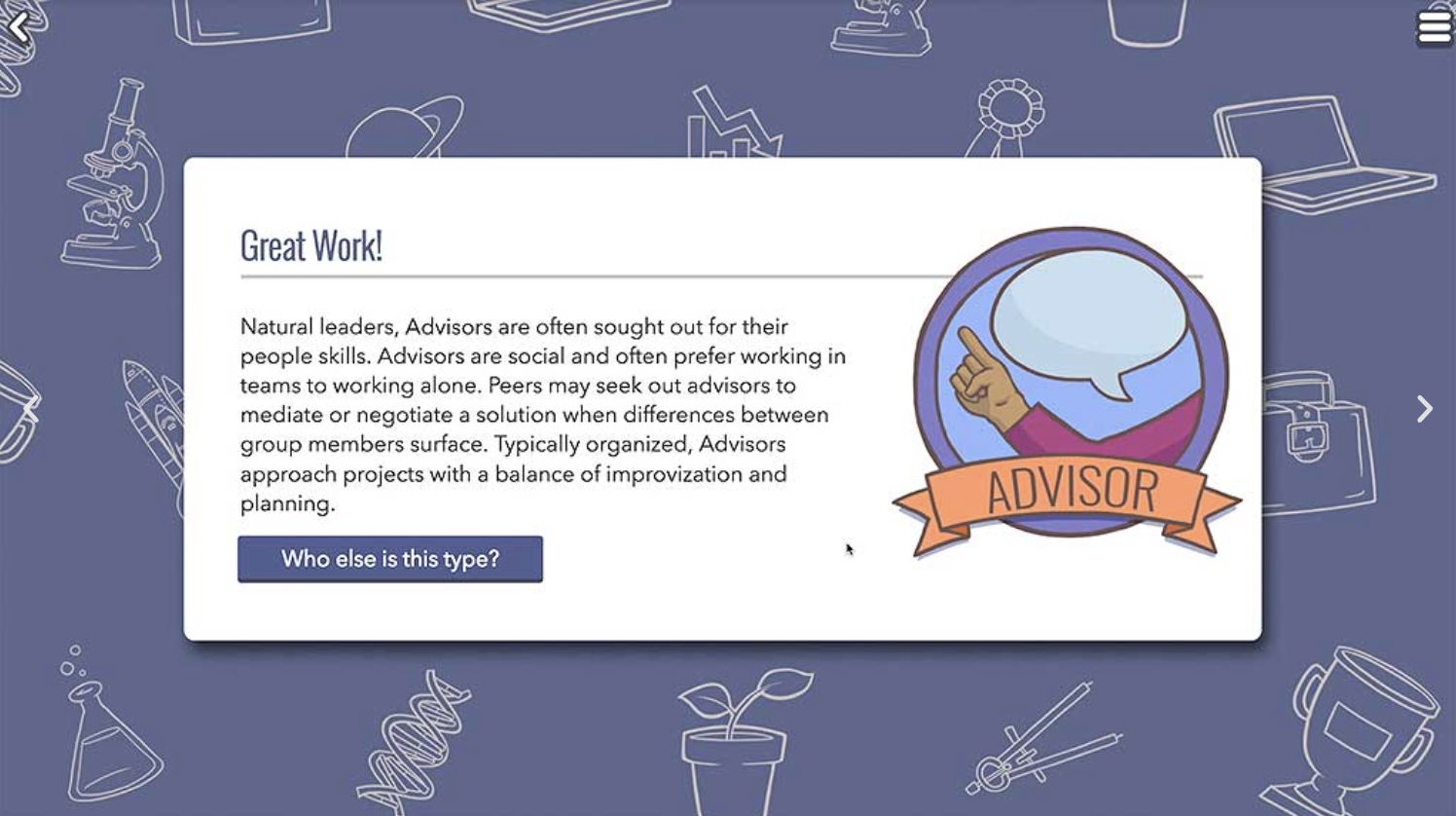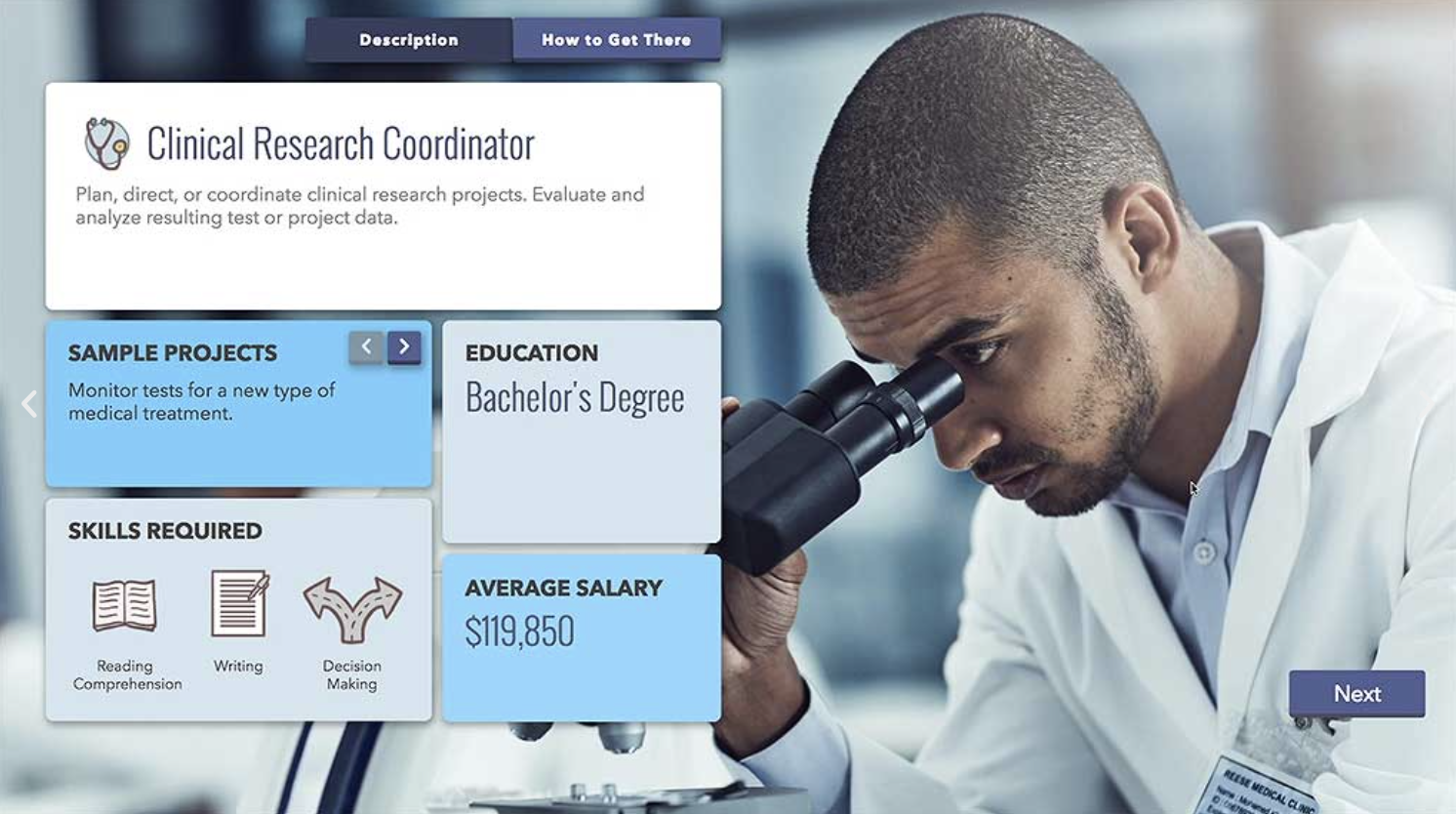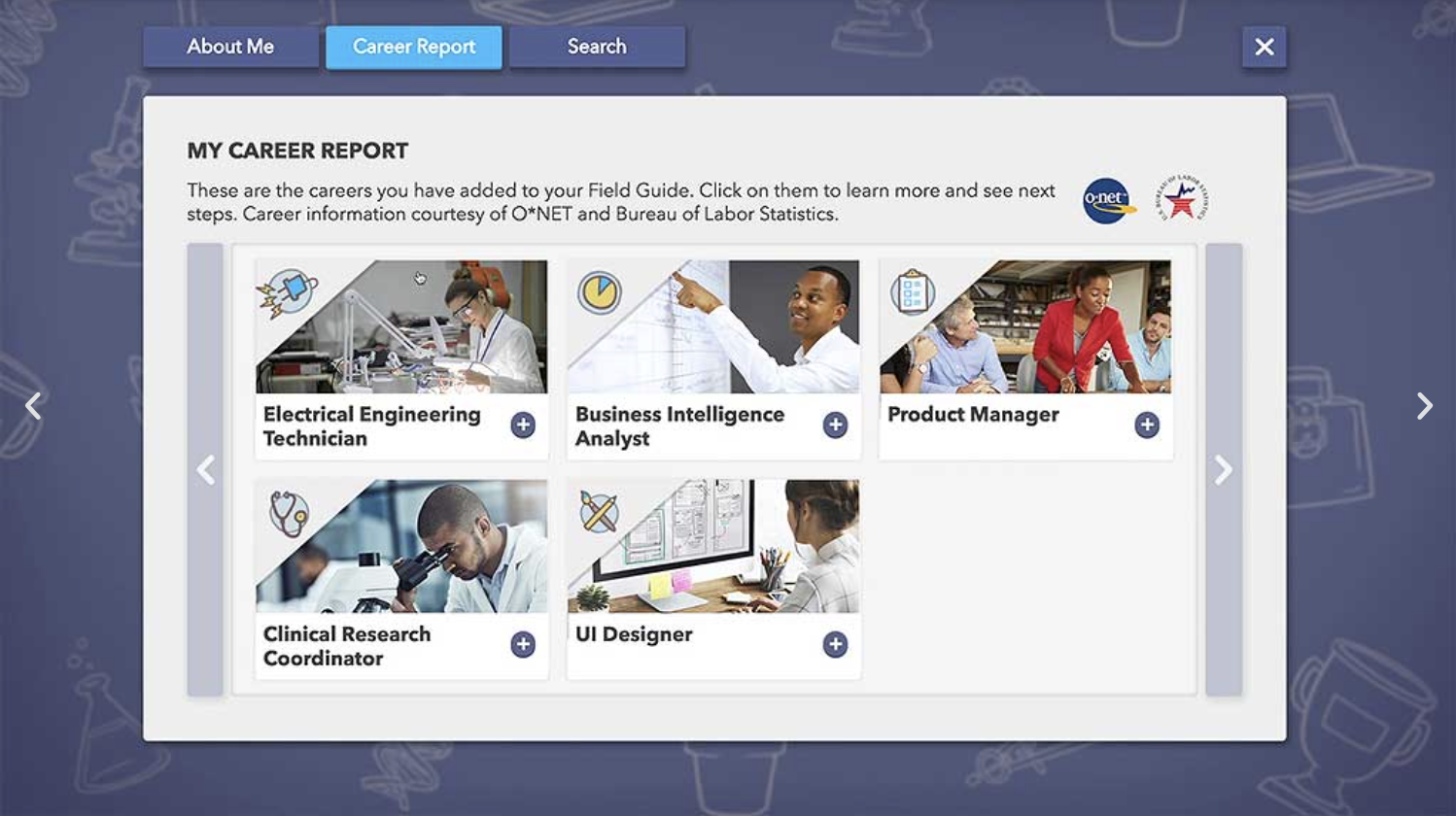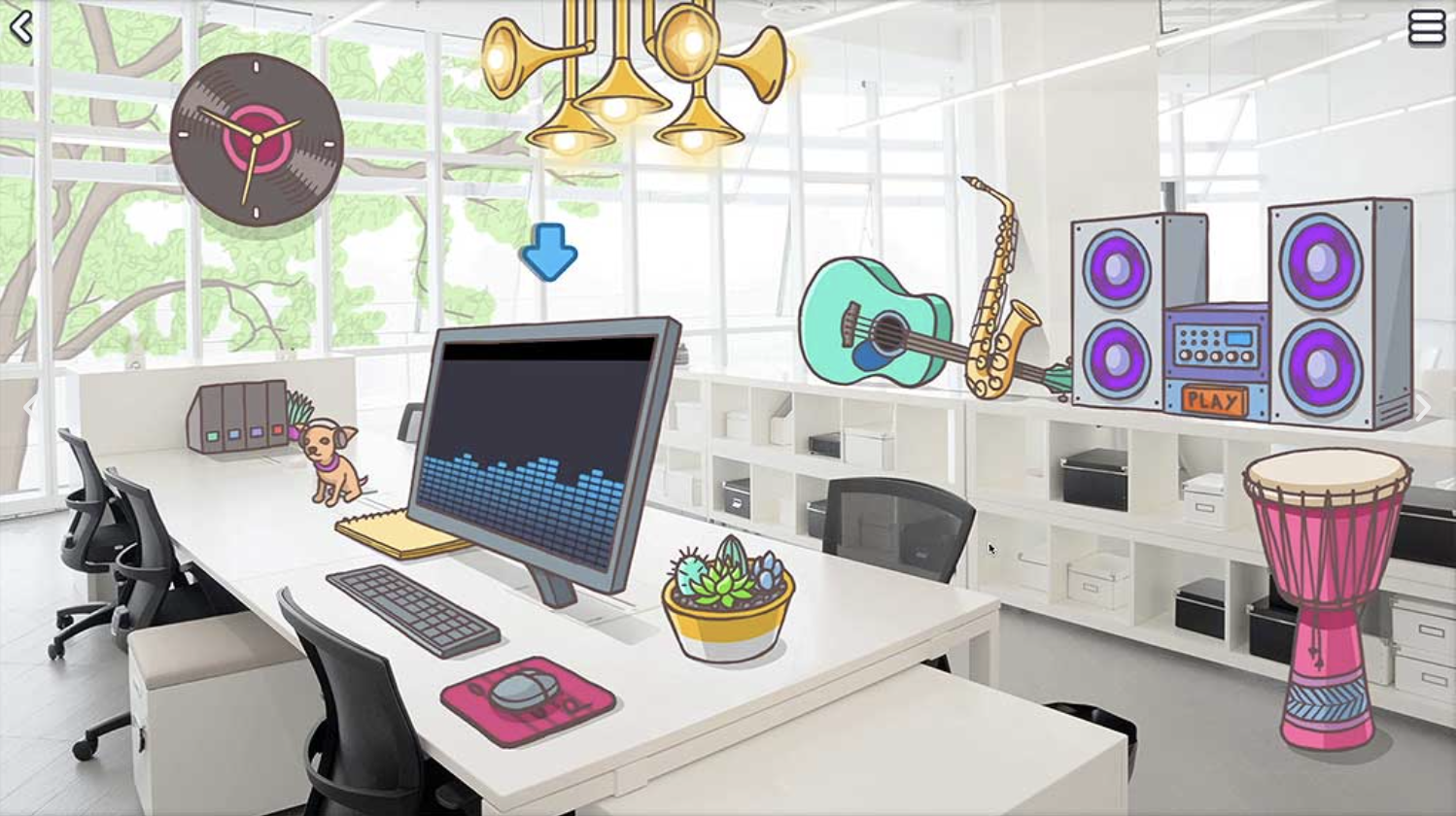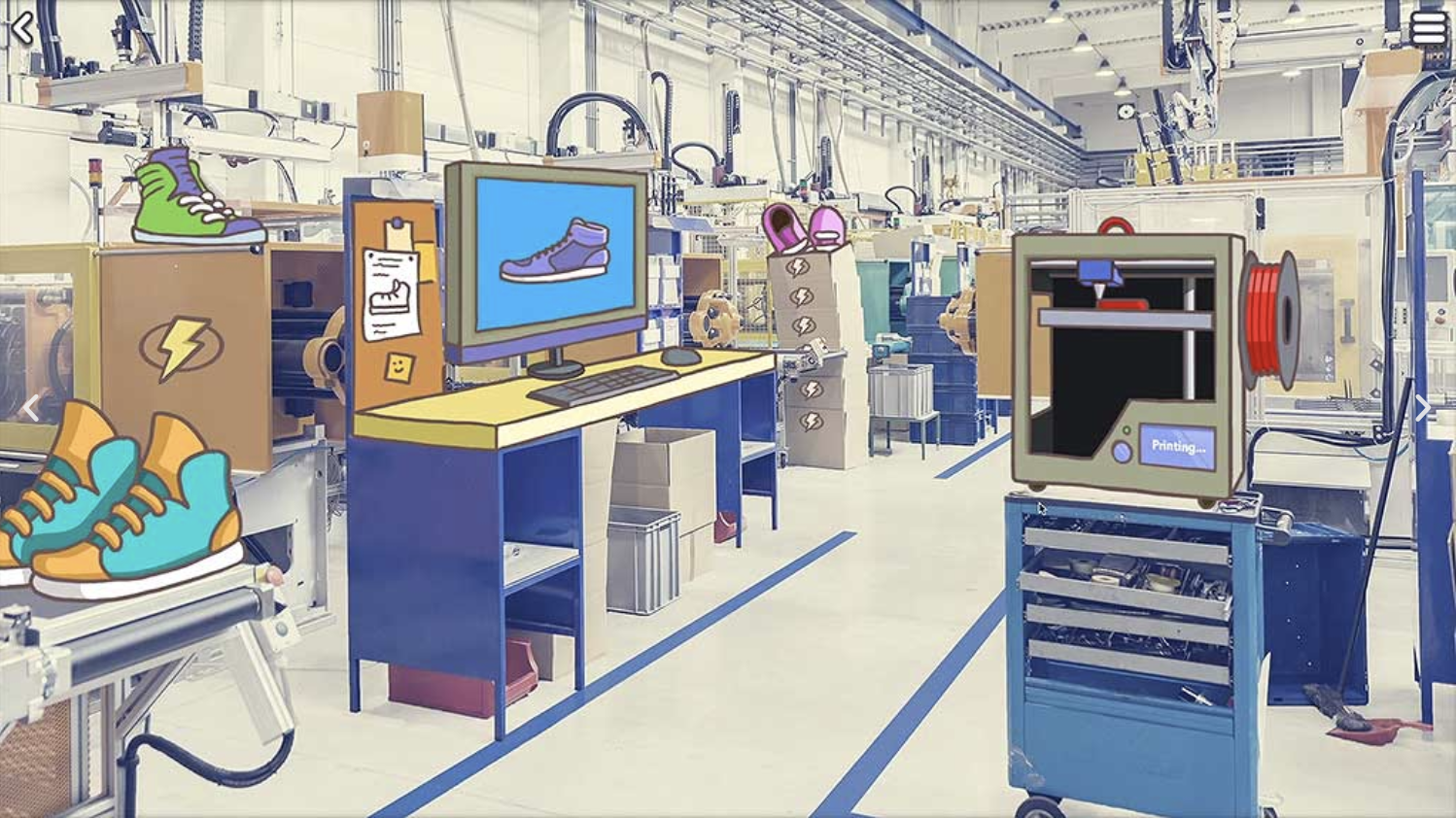Tags
| Industry |
Education |
|---|---|
| Client |
Everfi |
| Topic(s) | |
| Software |
HTML5 JavaScript SCSS YAML/JSON |
| Studio |
The Game Agency |
| Approved to Share | Yes |
Goal
This Career Readiness course allows students in grades 6 through 9 to explore STEM related careers through interactive gameplay and real world simulations.
**Internal Note** We cannot mention Everfi as the client
Solution
In this 6-module course, students explore the underlying STEM concepts behind things they are passionate about such as fashion, music, technology, medicine, sports and video games. By the end of the course, they understand:
- The basic process of designing a sneaker prototype.
- What meta tags are and how they are used at a digital music service company.
- How to use data analysis to diagnose issues with technology in a smart home.
- The use of diagnostic tools and machines to diagnose patients.
- How gathering and tracking data can be useful in sports.
- The use of project methodologies and programming languages in creating games.
The course begins with a personality quiz that connects student’s skills and interests to future career possibilities. They answer questions about how they like to work and solve problems, how tidy they keep their locker and what activities they enjoy. From the quiz results, they receive a personality type and are shown applicable careers. With each career slide, the students can see the education and skills required to be successful in this career while also understanding the average salary and path to get there.
Within each module, a related STEM career is highlighted, allowing them to learn about interesting jobs that they may want to pursue in the future. Careers that interest the student can be bookmarked for later.
A useful “field guide” provides students with information gathered during this course. A search tab allows students to see all of the careers that are in the course and filter those positions by learning type and education requirements.
Designing the Ultimate Prototype explores the process in designing a sneaker prototype. It takes place in a high tech manufacturing space with computers and a 3D printer. The student designs a sneaker on the computer and uses the virtual 3D printer to test their prototype. They learn about selecting materials such as PLA, ABS, nylon, or metal and about the qualities of each of these materials such as flexibility and strength. Then they are able to test out their prototype and see how it performs. The process will repeat for each part of the shoe (eg. body and decals). The student must also remember to stay within budget. The module ends by showing a few career options such as Quality Control Analyst or Mechanical Engineering Technologist and giving the student the option to bookmark one of those careers.
The Perfect Playlist brings an element of creativity to STEM most students wouldn’t expect. Throughout this module, students are introduced to the concept of meta tags and user data. They are taught that the material or items they search for and click online have a significant impact on the material that is recommended to them. Through various interactive activities, students are tasked with curating the perfect online music playlist based on a specific user’s tags and data. The more accurate and personalized the music recommendations, the more likely this user and many others are to stay with this particular online streaming service.
Home of the Future centers on a home connected through the Internet of Things (IoT). Through IoT, this home is constantly sharing data and information across devices, and in turn, can better serve the people living there. However, in this game, all of the connected devices are out of control! The fridge is blinking with an error message, the temperature gauge is flashing and the front door is flashing red. Since all of the devices from the lights to the television are connected through the online network, it’s up to the student to properly reconfigure the devices. Playing the role of a Connection Scientist, students go through a series of interactive activities to properly diagnose each device issue, ultimately bringing peace back to the home.
Medical Machines allows students to act as a doctor at a medical practice, gathering and analyzing information to diagnose each patient. Along the way, they learn how to use diagnostic tools and medical machines to make an accurate diagnosis and understand the day-to-day job of a doctor. In this course, they will be able to explain the process by which a physician gathers and uses data to treat a patient, understand how aspects of a physical exam contribute to accurate assessment of patient’s condition and identify three types of imaging, how they work, and their purposes.
Data Champions teaches learners how to make decisions when faced with data related challenges. Through problem-based learning, learners will compare sets of data and use technology to gather and track data. Learners will connect these data analysis skills to STEM careers which require research, the scientific method, and analysis of data. They will be able to define dependent and independent variables and using historical data, they will predict outcomes based on that data.
Game Development Studio allows learners to explore the game design process using best practices in software development. Through the lens of a game producer learners are asked to problem solve, apply and use tools to get work done, and to make decisions within defined limitations. They will be able to describe the benefits of using standard software development methodologies (Agile & Waterfall), develop a project timeline, evaluate and select programming languages based on criteria and identify tools needed to perform these tasks.
Once all modules are completed, the student can see all skills that were practiced and explore the careers that have been bookmarked throughout the course. They can continue to search for new careers to add to their list.
This course was designed to:
- Inspire students and spark their curiosity in STEM careers.
- Expose them to STEM concepts such as data analysis and scientific thinking.
- Teach students to think like an entrepreneur and learn early business skills.
